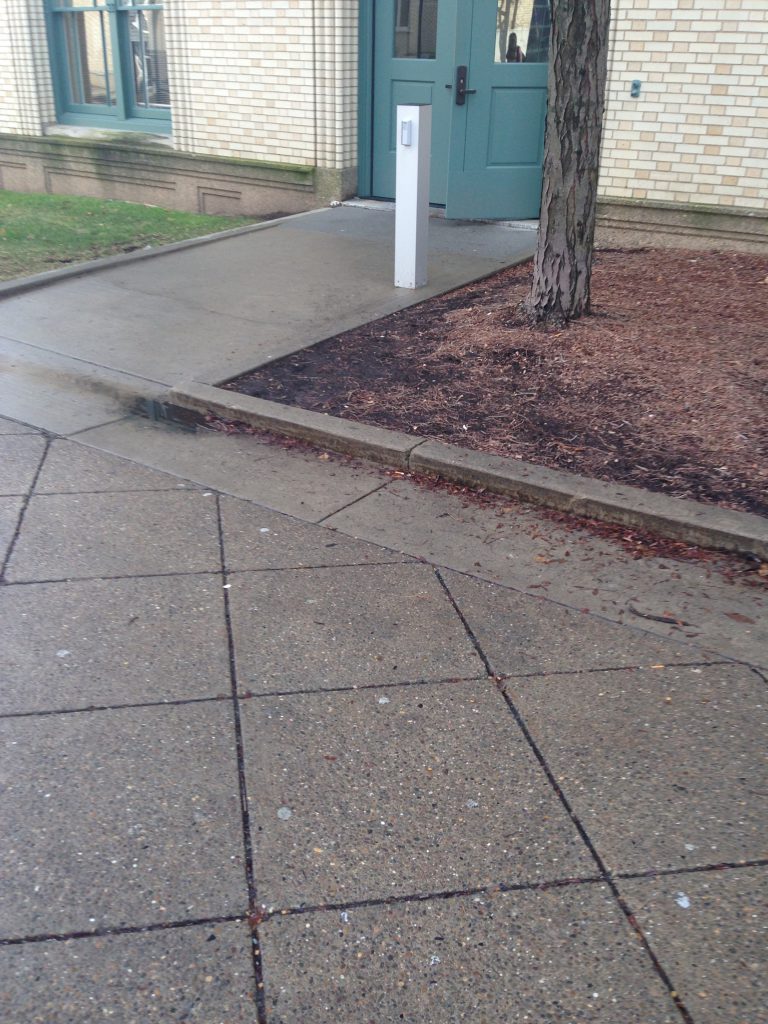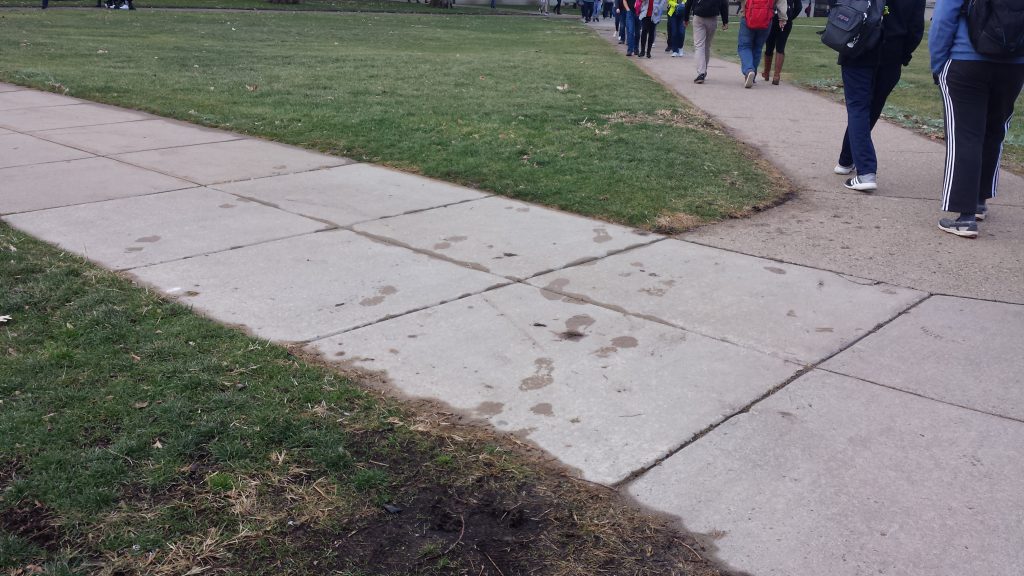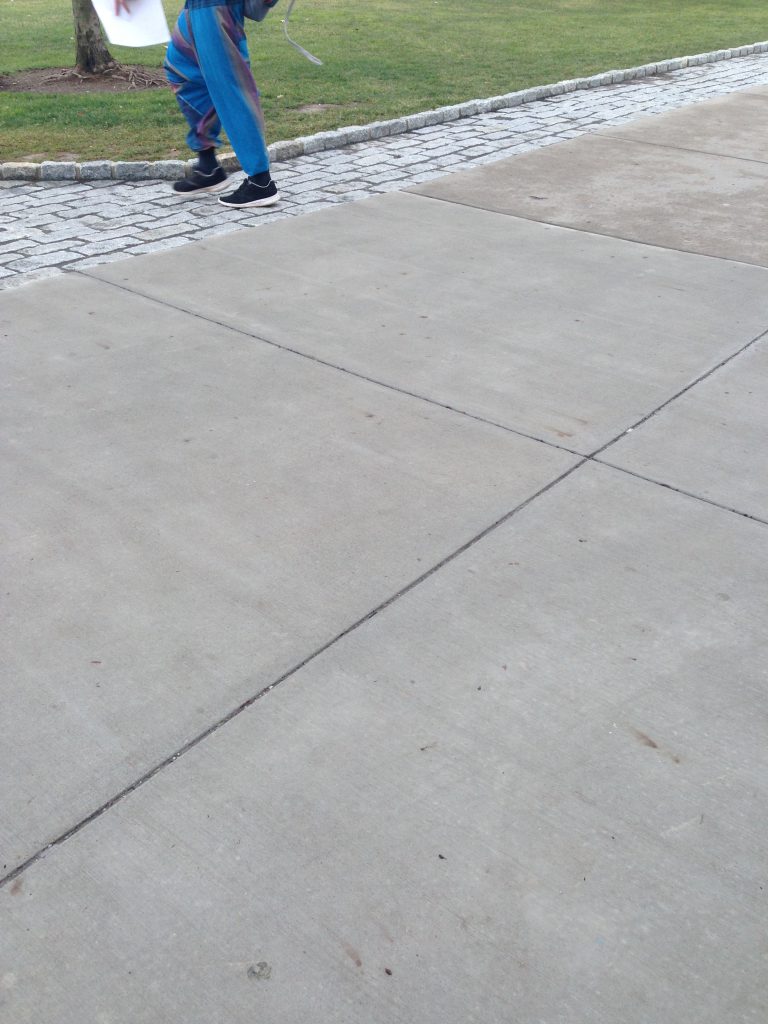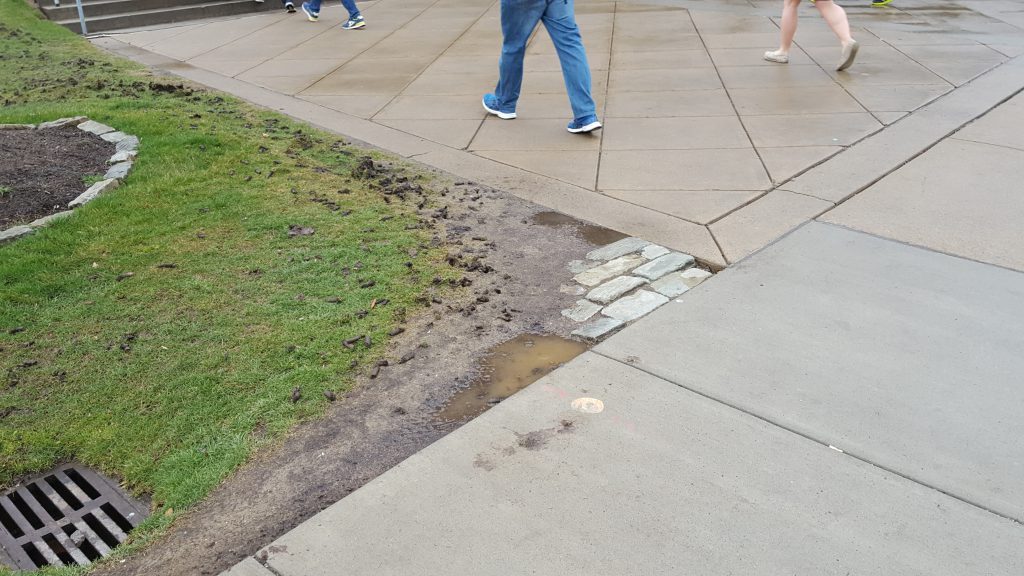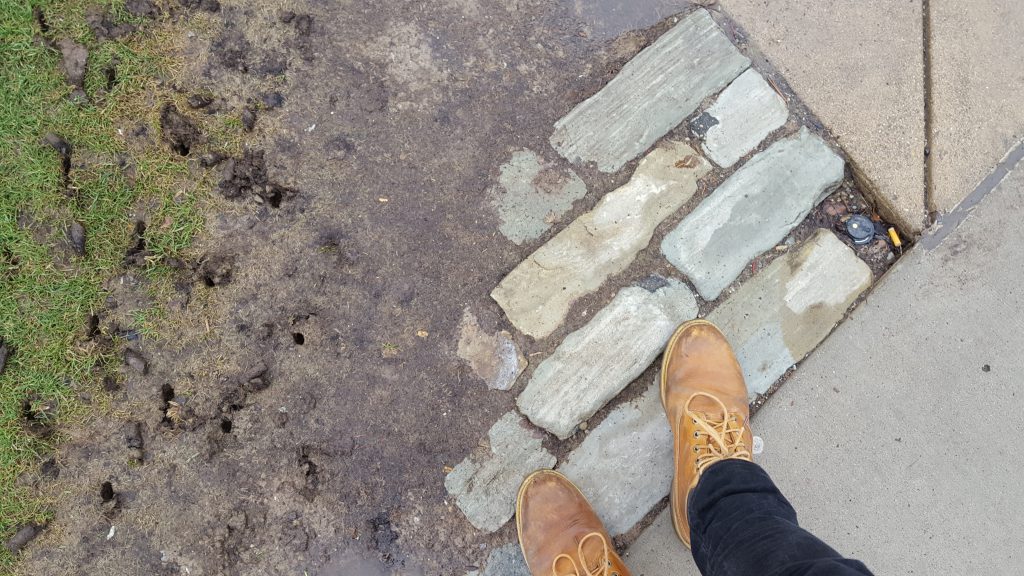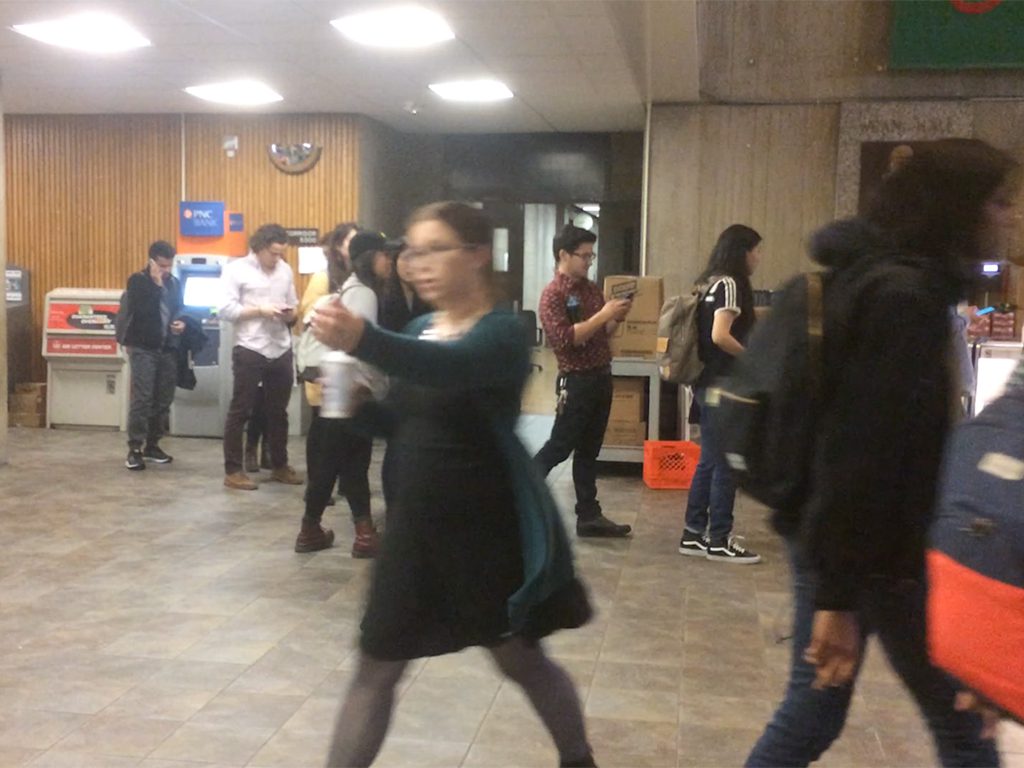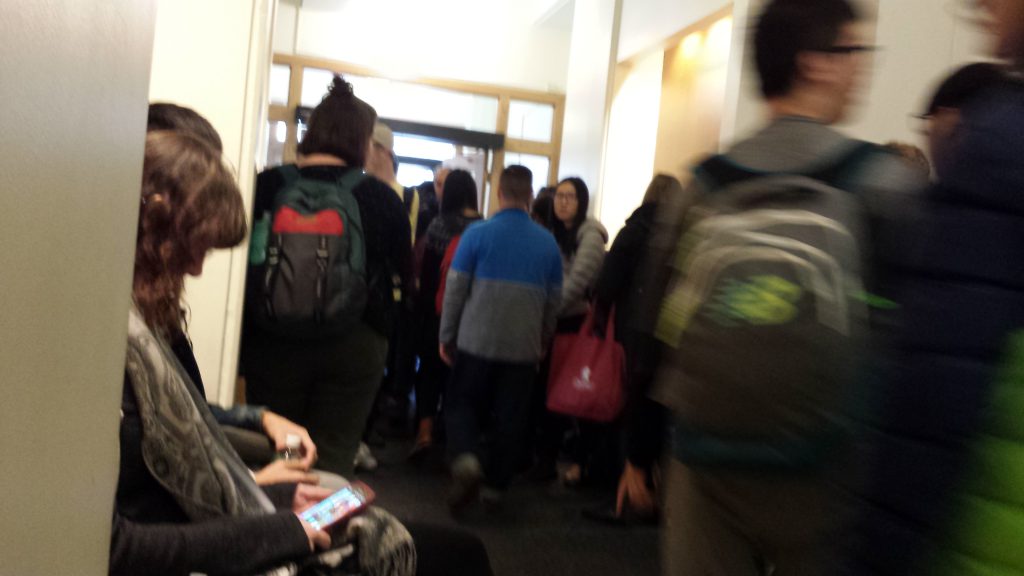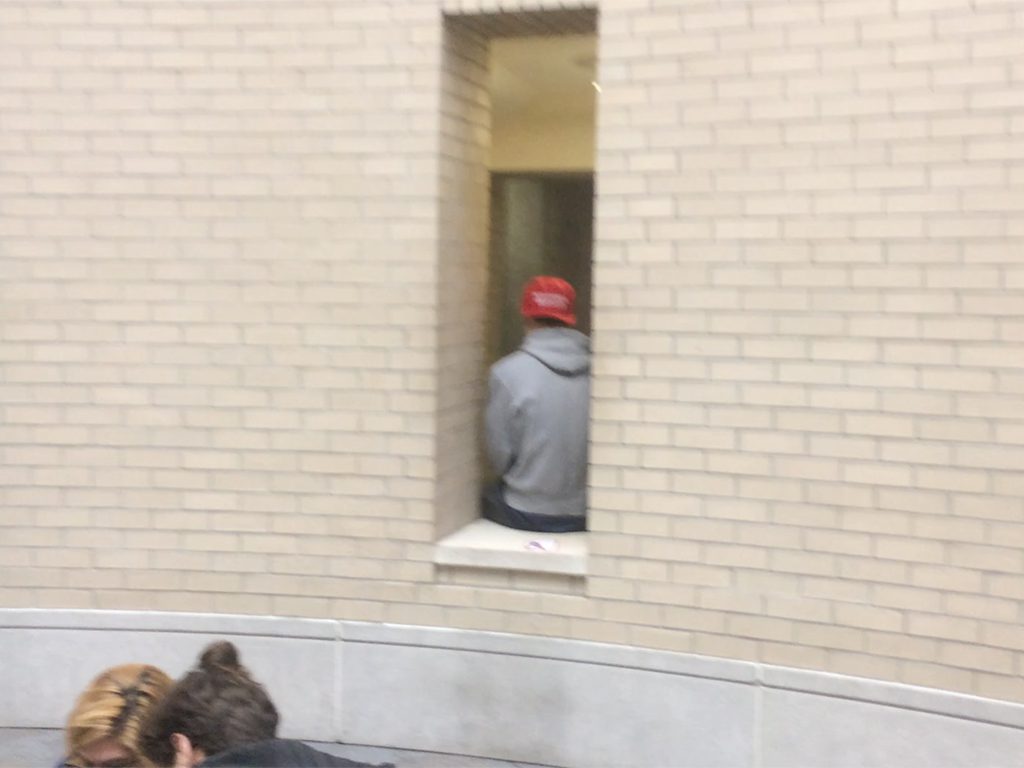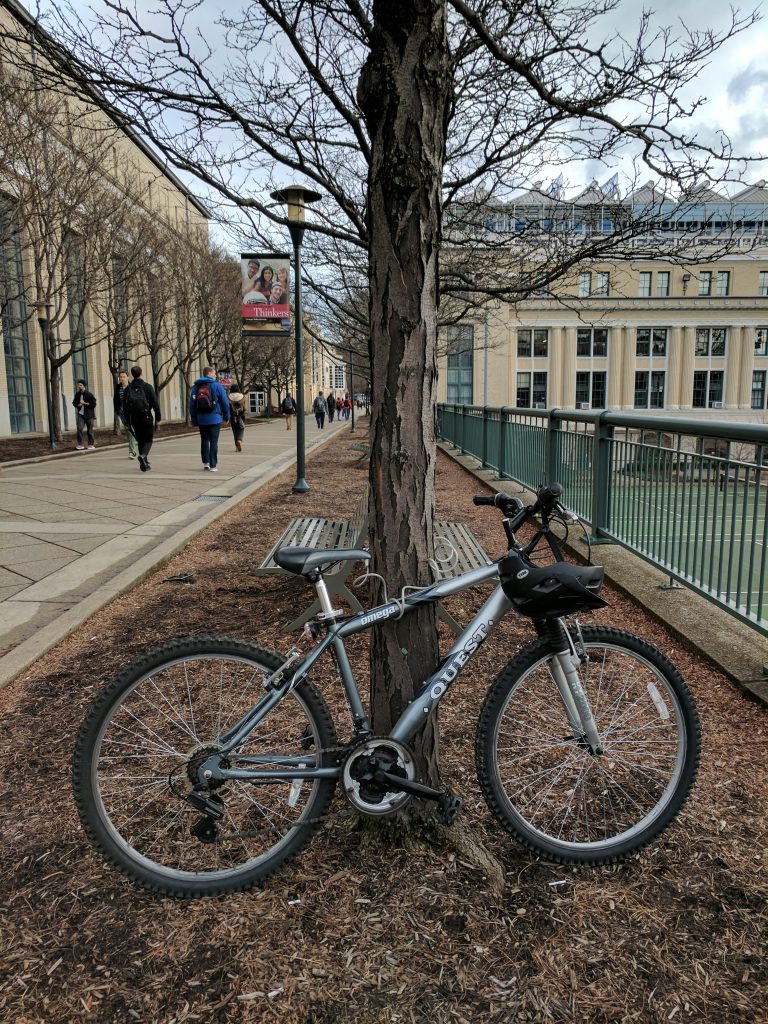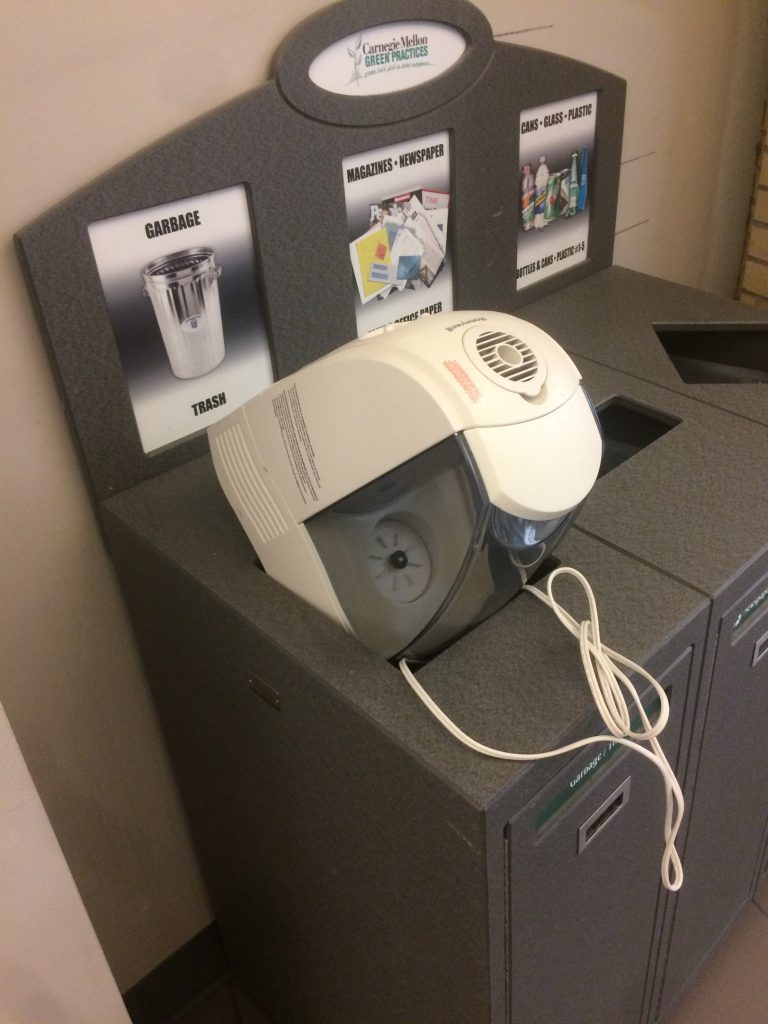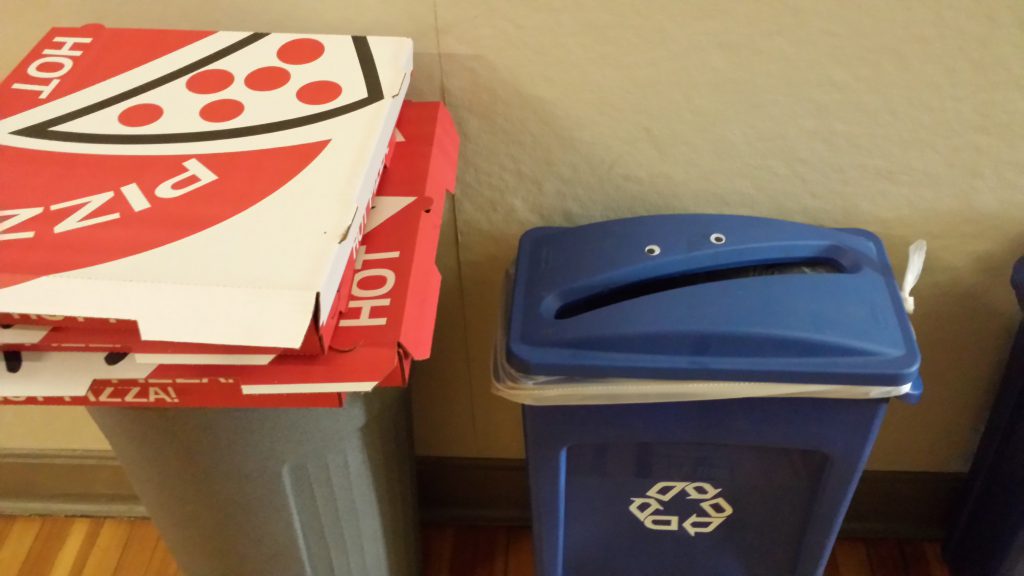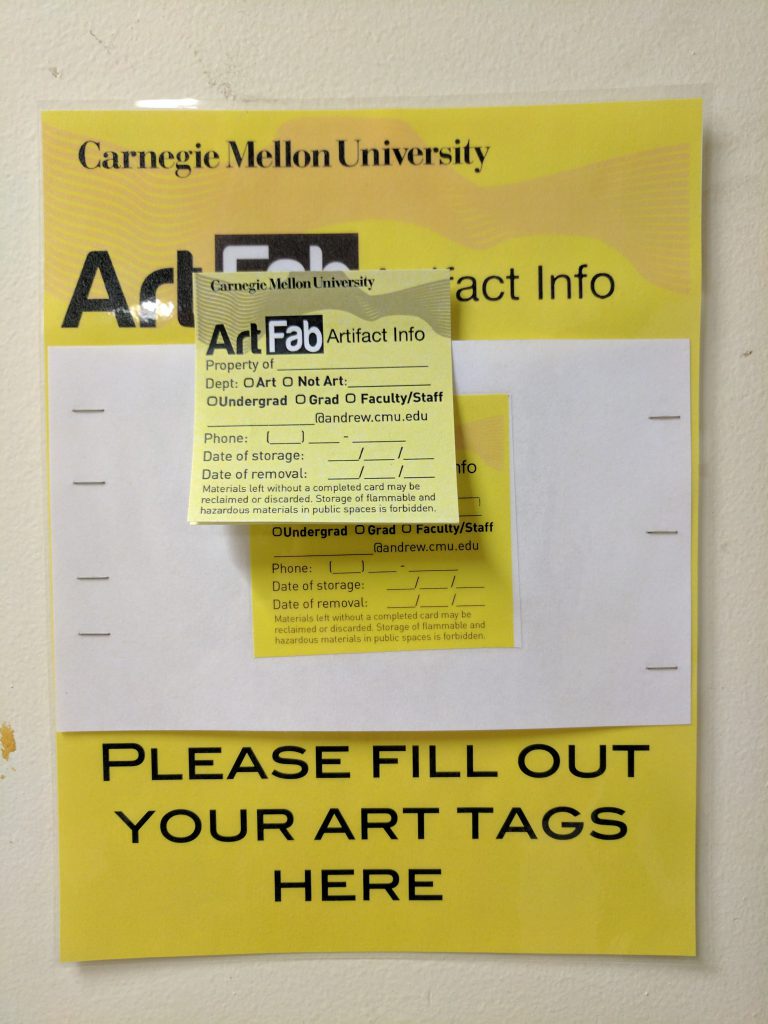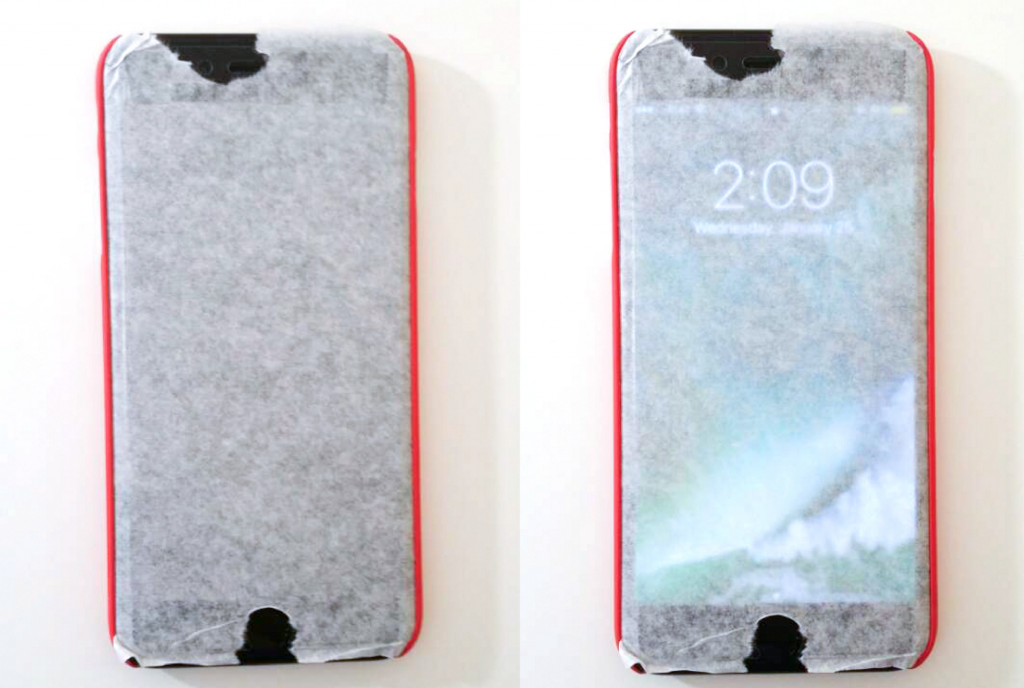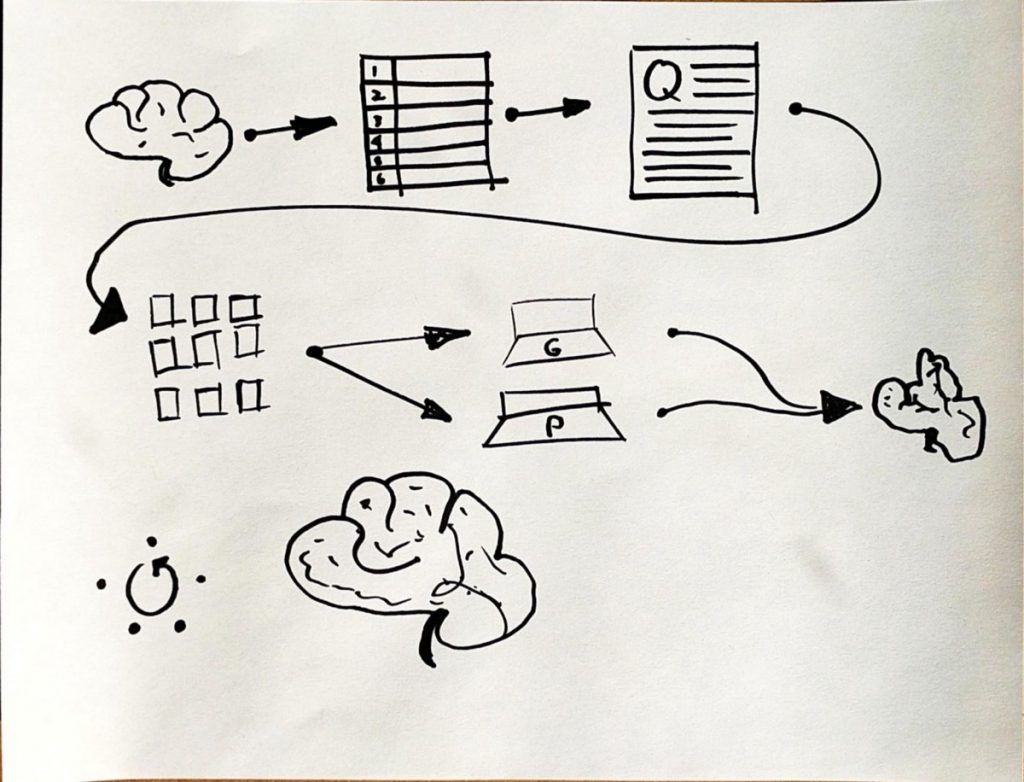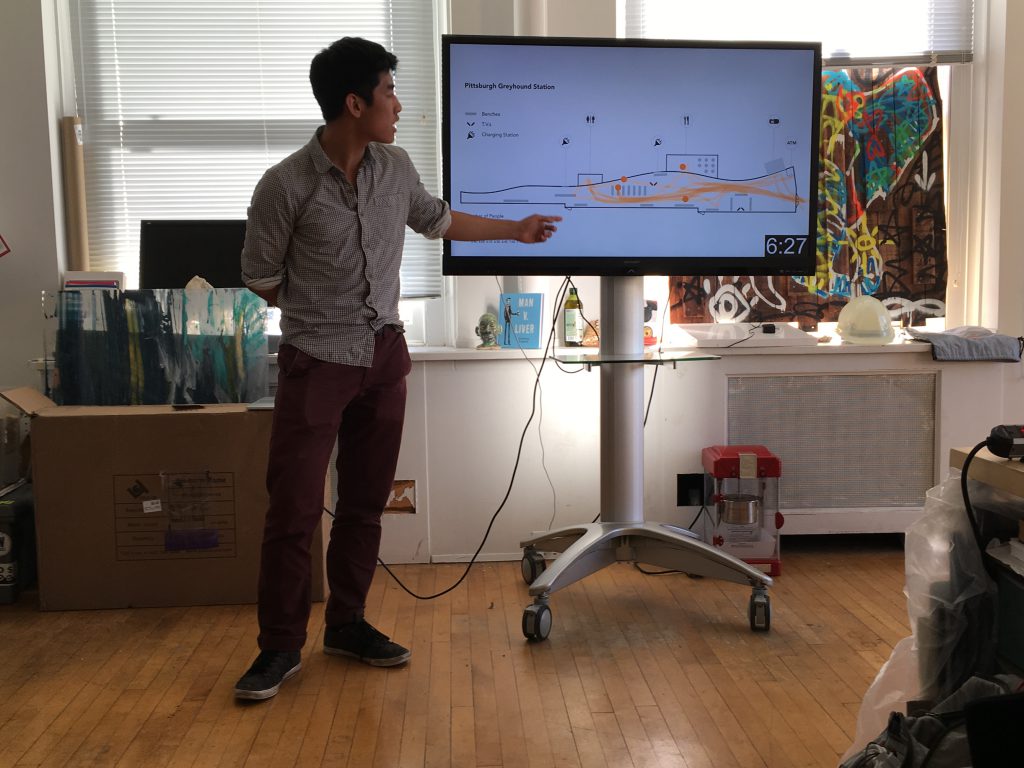
In this short introductory unit, we looked at ways in which the design of environments, and features within them, affects people’s behavior and interaction with each other. Design influences what people do, but often the ‘links’ are invisible or only apparent by their effects. Or, we notice them in passing, but do not take time to reflect on them or draw parallels across situations.
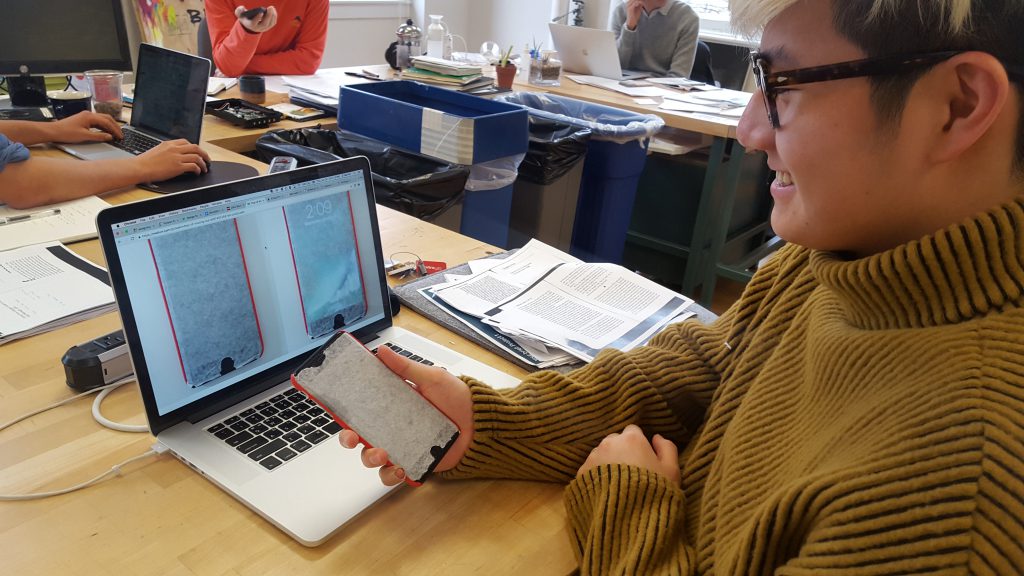
As designers pioneering new approaches to creating environments for human experience, cultivating a kind of ‘hypersensitivity’ to noticing—and learning from—the ways in which design and behavior interact can be part of developing the attention to detail which will serve you well professionally. Details of the unit in the syllabus.
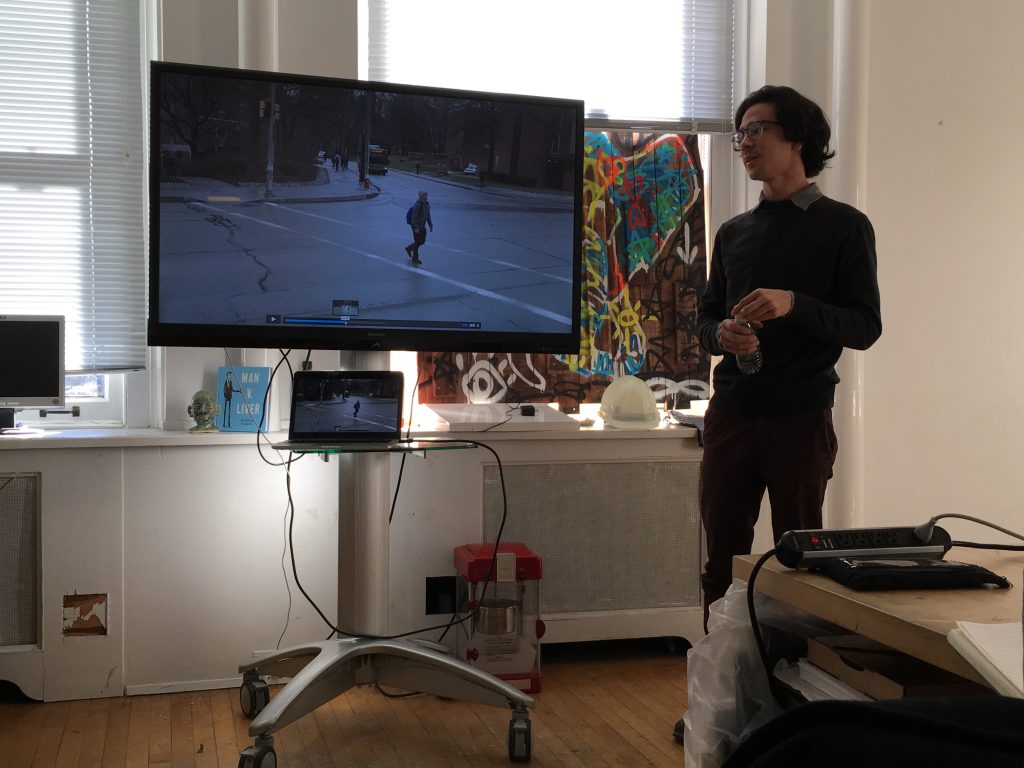
We started with quick observation exercises aimed at developing (or refreshing) a capacity for noticing, for paying attention to the ways in which people and environments affect each other. We looked around campus for instances of points of confusion, unintended uses, constraints, and disobedience in physical environment settings, and discussed how these effects manifest in different ways—what could we find? (Photos here by Chris Perry, Gilly Johnson, Jasper Tom, Ty Van de Zande and Dan Lockton.)
We examined ideas around how environments influence people, and are in turn influenced, both physically and digitally, from thigmotaxis to stigmergy, shearing layers and pace layers, fundamental attribution error and design for behavior change. We also thought about the practice of observation, noticing and deconstruction of people’s actions in different ways, and in different levels of detail. The project brief was around designing a way to do research in this field—designing a ‘probe’ rather than a solution to a problem:
- Choose a situation where ‘design’ seems to be affecting people’s behavior in an environment (physical or digital)
- Find a way of studying what’s going on—what patterns exist? In what different ways are people’s behavior affected?
- Visualize (or otherwise communicate) what you find
- (optional: suggest ways things could be different, if you feel they need to be)
- Keep a blog of your process (photos, sketches, notes)
Here are the projects:
Comparing a coffee shop and a tea shop: Gilly Johnson
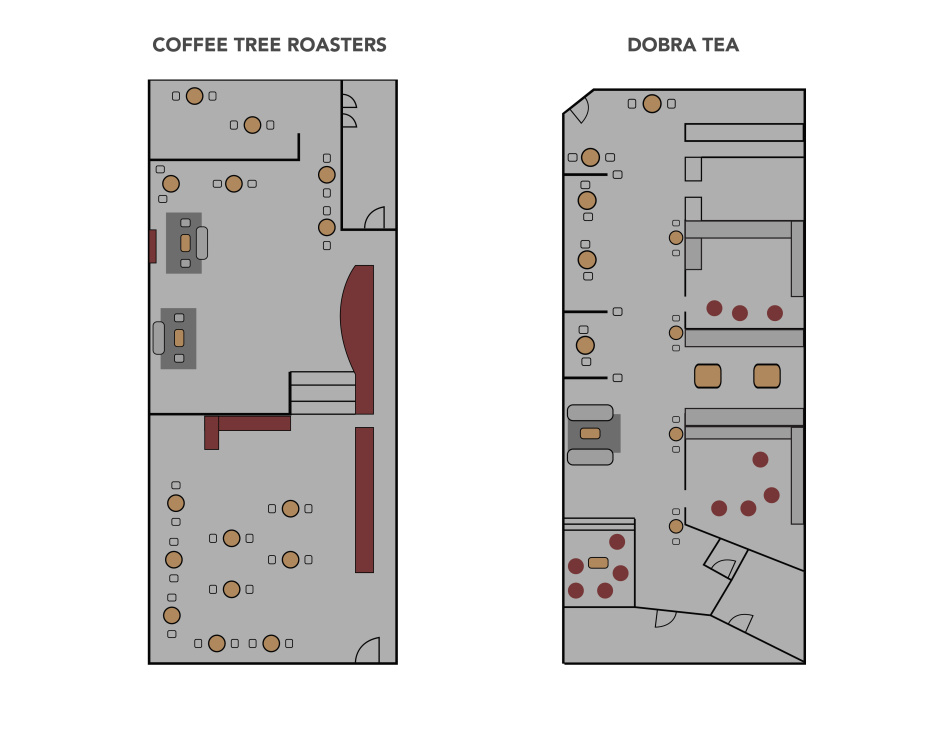
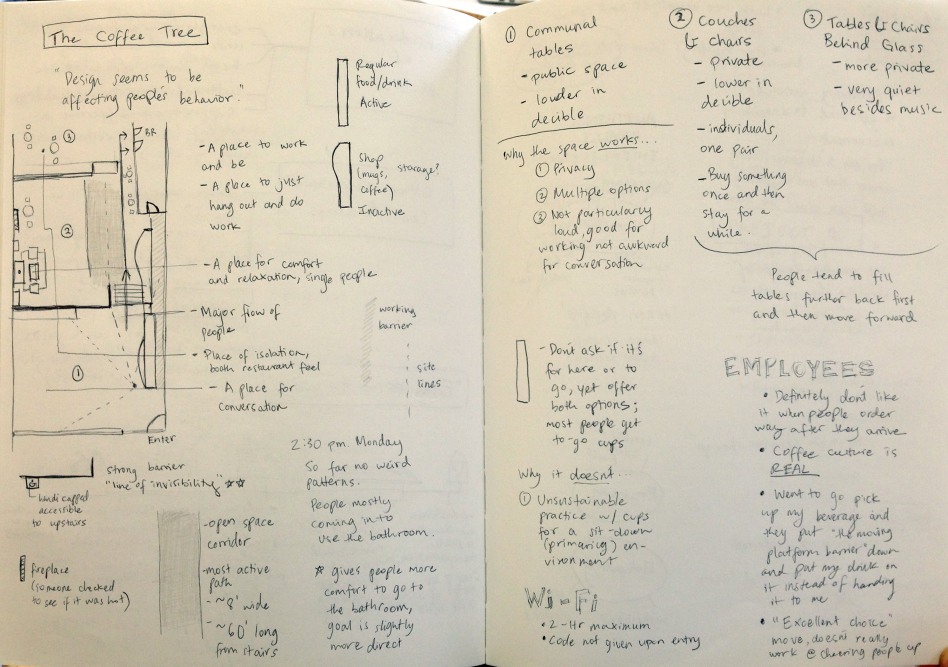
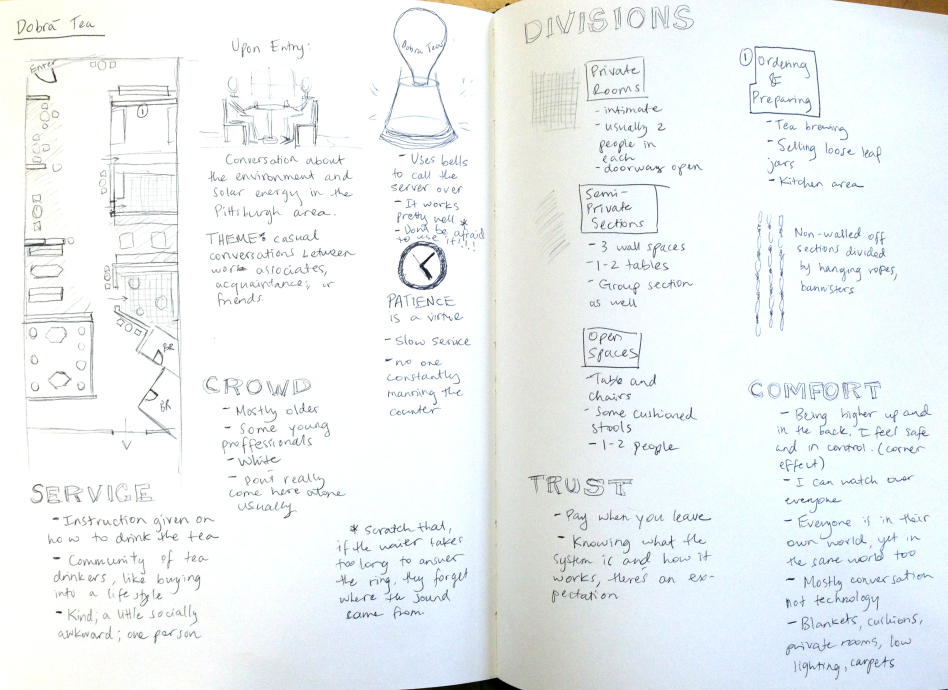
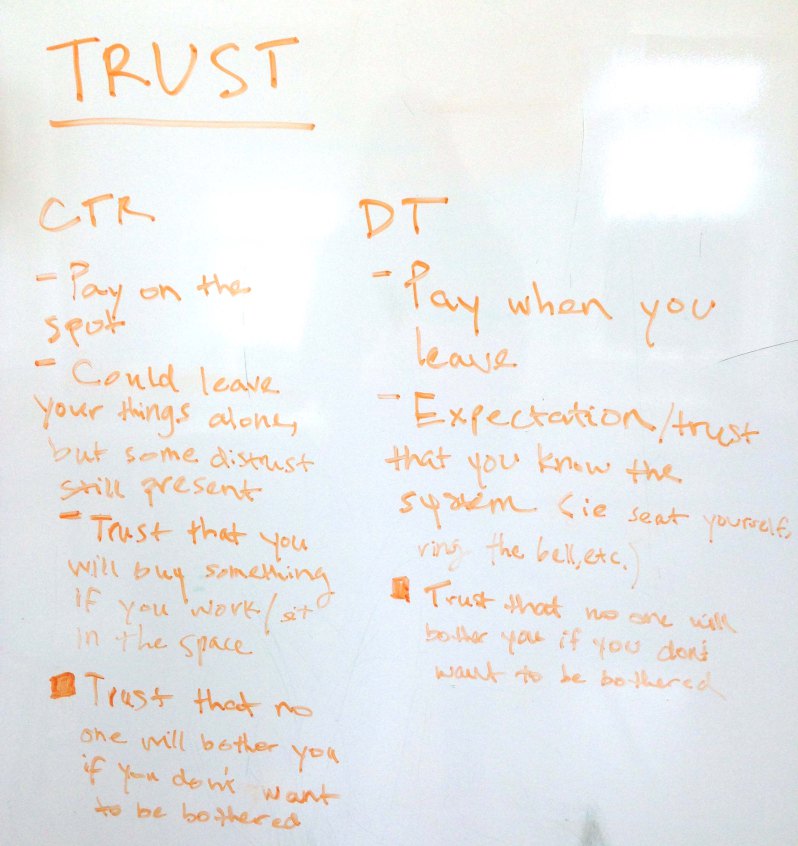
Gilly Johnson compared structural and systemic aspects of the atmosphere and experience in Coffee Tree Roasters in Shadyside, and Dobra Tea in Squirrel Hill, including the layout and spatial division, and emerging themes such as service and trust: full details of the project.
Fear of Missing Out: Ji Tae Kim
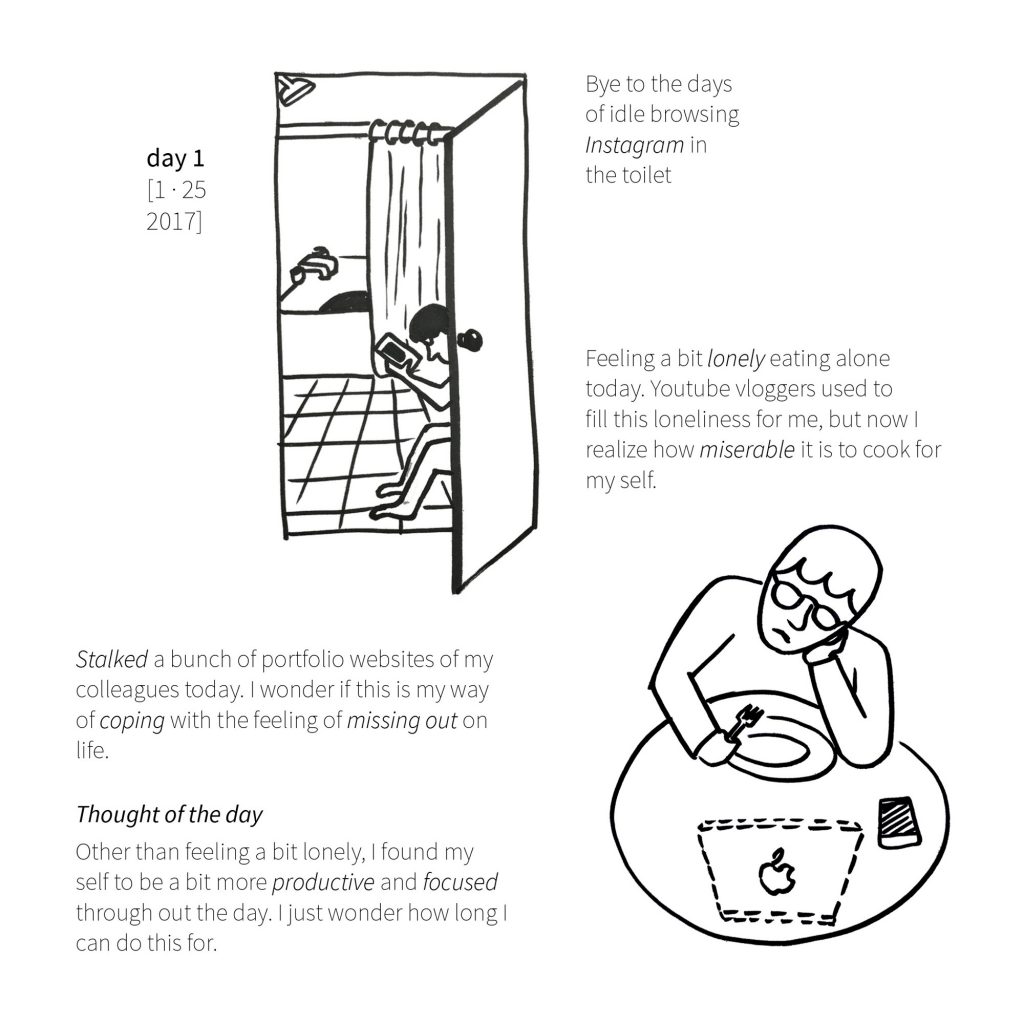
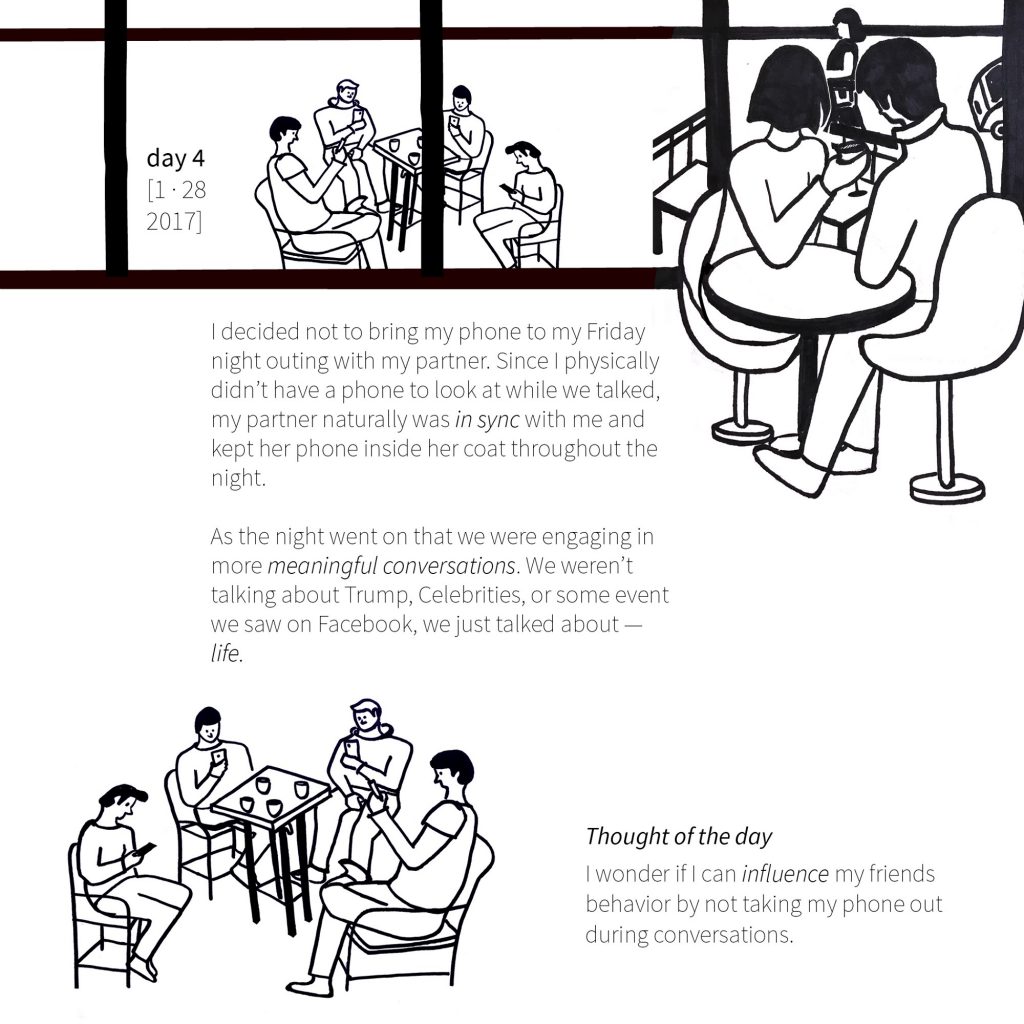
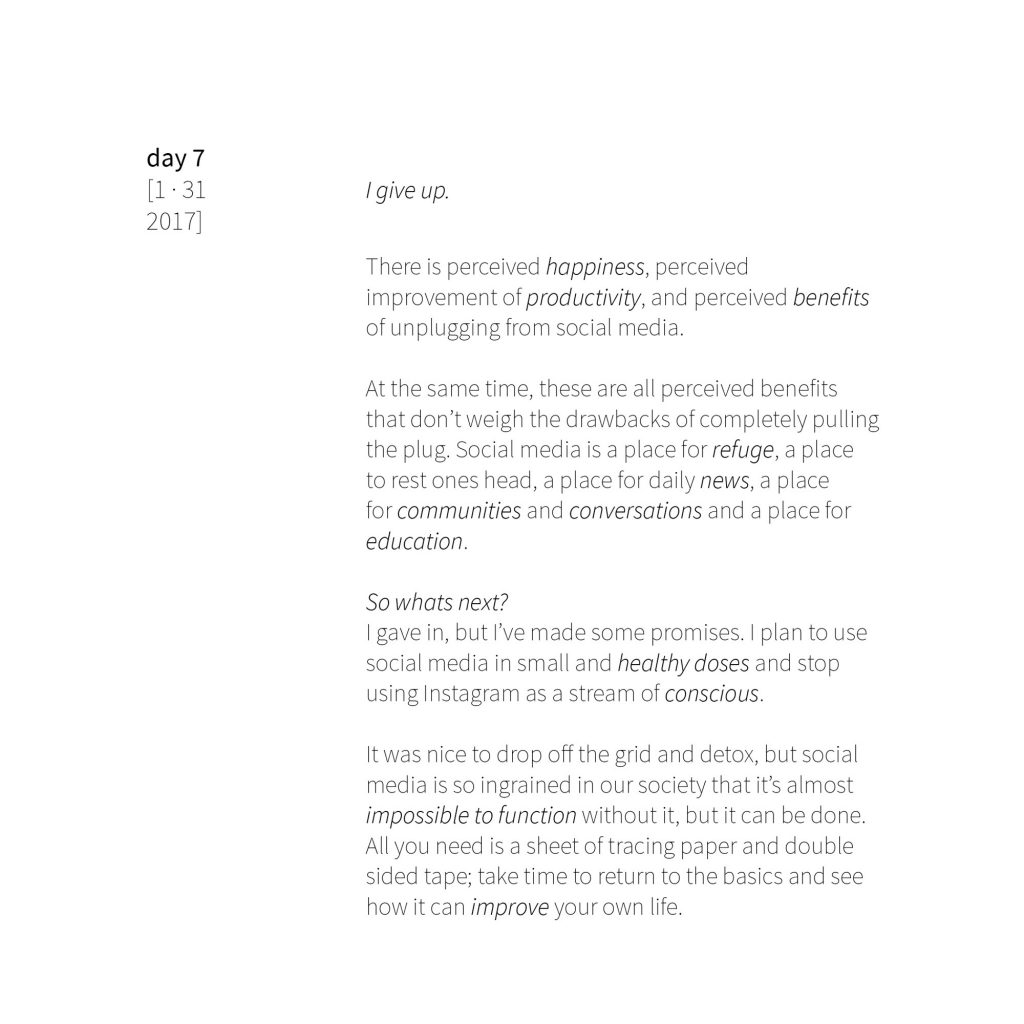
Ji Tae Kim examined how the design of messaging and social media leads to ‘fear of missing out’ through unplugging himself for a week: full details of the project.
Greyhound Station: Jasper Tom
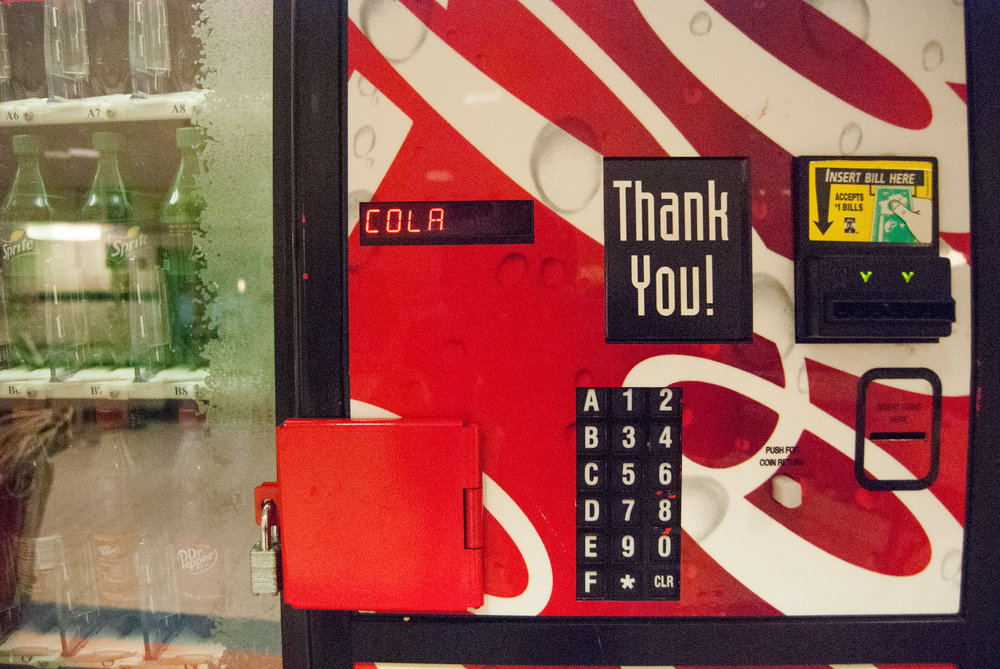
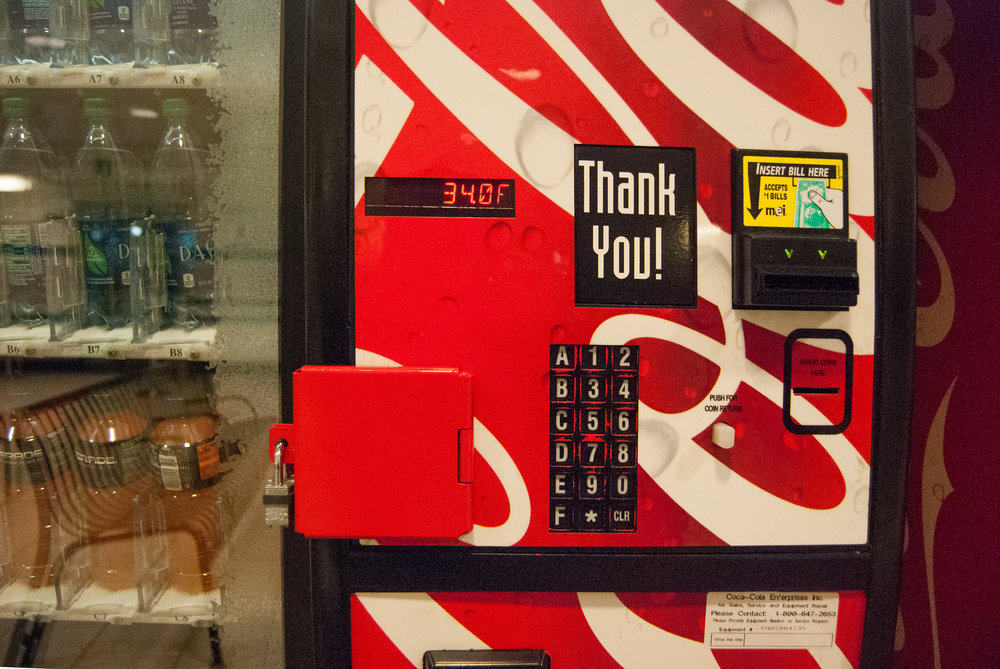
Jasper Tom investigated how the design of Pittsburgh’s Greyhound Bus Station influences patterns of people’s behavior: full details of the project.
Managing information across environments: Ty Van de Zande
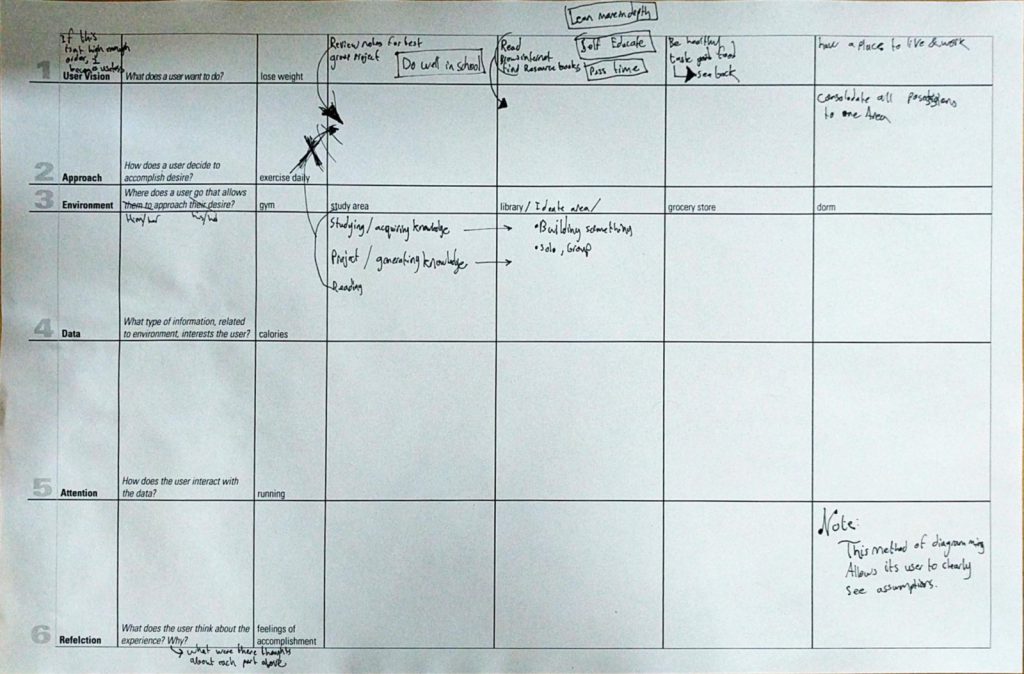
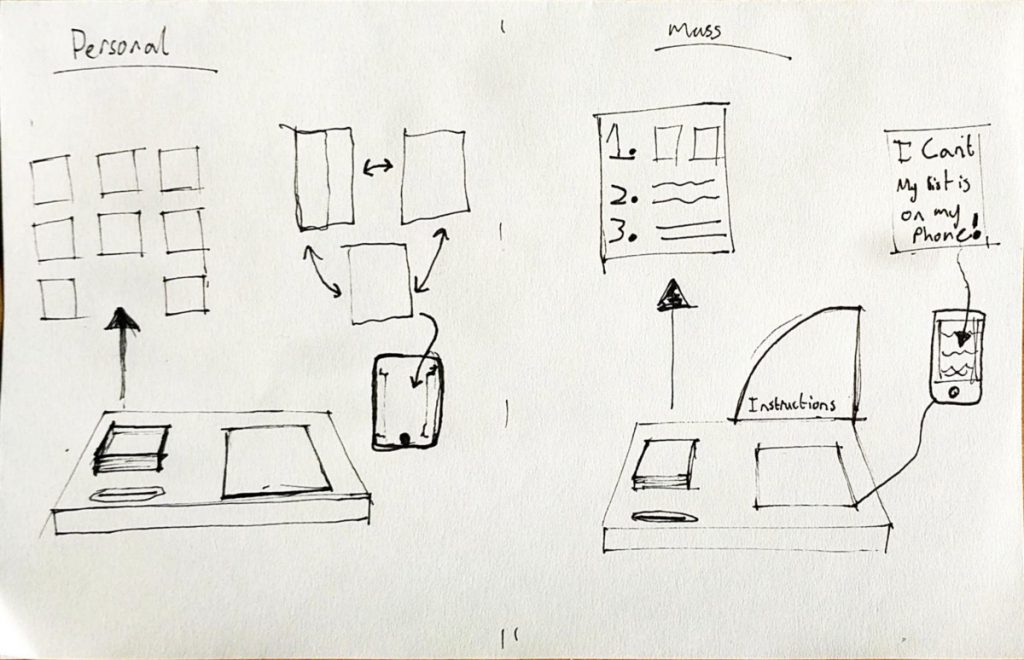
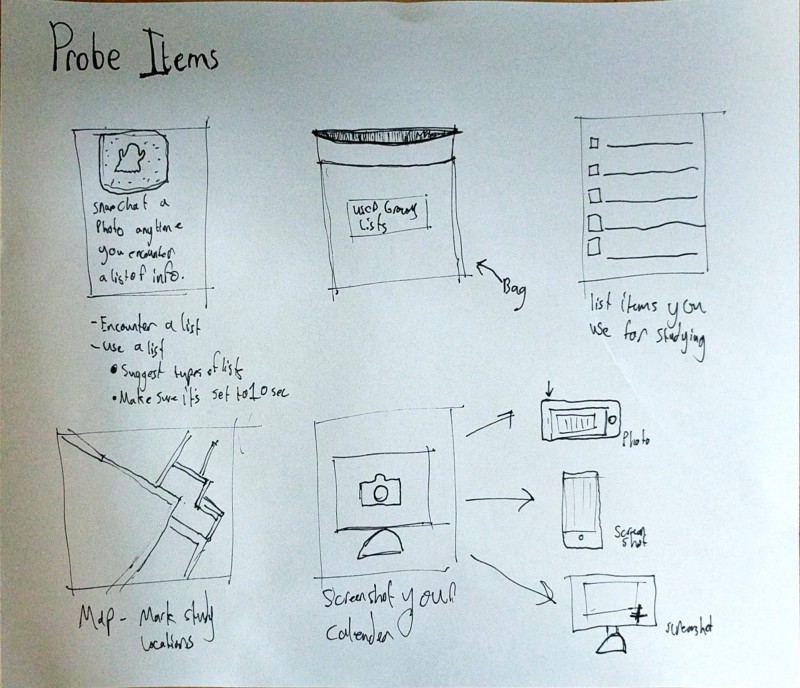
Ty Van de Zande looked at how people manage information such as to-do lists across physical and digital environments, and developed a framework for investigating this in a structured way: more details of the project.
How to Cross the Road: Chris Perry
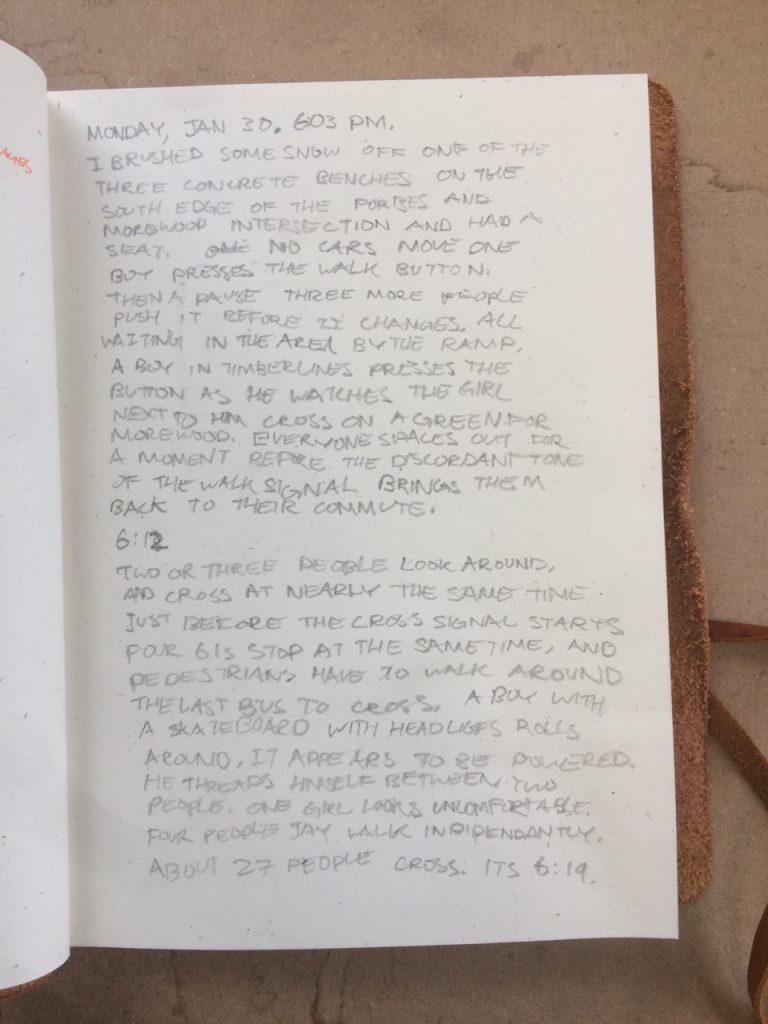
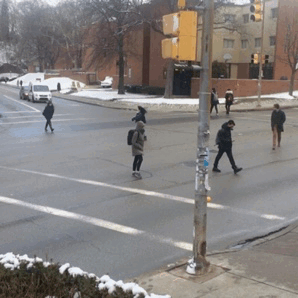
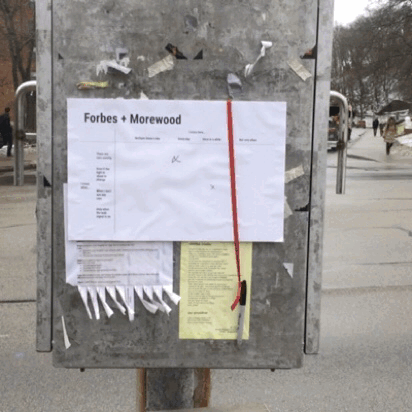
Chris Perry observed the different ways in which people use a pedestrian crossing at Morewood Avenue and Forbes Avenue, at the entrance to CMU, and how the design affects those actions: more details of the project.
